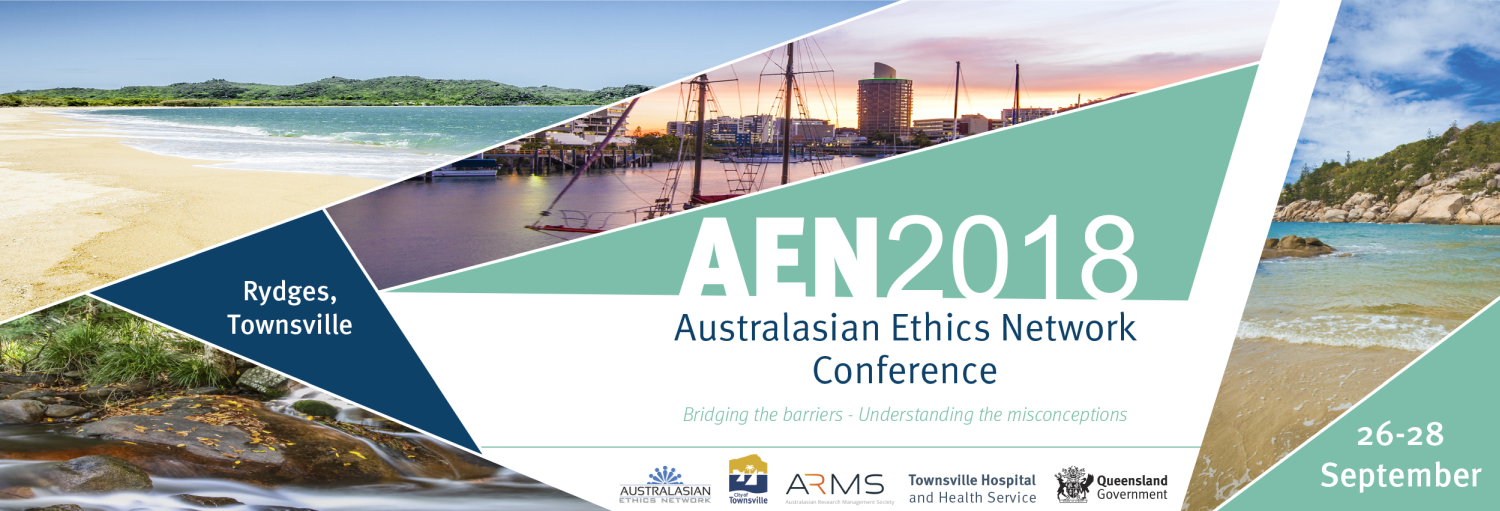The 2018 Australasian Association of Bioethics & Health Law Conference was held at Rydges in Townsville, Queensland from Saturday the 22nd to Tuesday 25th September 2018.
2018 Program

Saturday 22nd September 2018 | Rydges Townsville
| 0800 | Pre-Conference Workshop Registration Open |
| 1330-1730 |
Clinical Ethics workshop | Portside, Rydges Townsville This workshop is designed for those involved in the provision of clinical ethics support within organisations (such as clinical ethics committee members, clinical ethicists and clinicians). Sessions will explore various aspects of clinical ethics support including transgender-related issues, emerging end of life concerns, and the skills for conducting effective clinical ethics case consultations.
|
Sunday 23rd September 2018 | Rydges Townsville
| 0800 | Pre-Conference Workshop Registration Open | |||
| 0900-1200 | Student/Early Career Researcher Stream Workshop | Portside, Rydges Townsville Morning workshop including morning tea. Attendance at this workshop by students (delegates and non-delegates welcome) and Early Career Researchers, fully subsidised by AABHL. Numbers are limited and registration essential.
|
|||
| 0900-1000 | Research Ethics Stream Meeting | Poolside Boardroom | |||
| 1000-1100 | Health Law Group Meeting | Poolside Boardroom | |||
| 1100-1700 | AABHL Conference Registration Open | Conference Centre, Rydges Townsville | |||
| 1130-1300 | Committee Meeting | Savoy Room | |||
| Opening Plenary | Raffles Room Chairs: Lynn Woodward & Bernadette Richards |
||||
| 1300-1315 | Welcome to Delegates | AABHL 2018 Chair Lynn Woodward Welcome to Country President’s Welcome |
|||
| 1315-1430 |  Kirby Oration: Professor Anne-Maree Farrell Kirby Oration: Professor Anne-Maree FarrellRegulating human tissue in Australia: Principles, institutions and politics Professor Anne-Maree Farrell is Professor and Chair of Health Law and Society, and Director of the Centre for Health Law and Society at La Trobe University. |
|||
| 1430-1500 | Afternoon Tea | Foyer | |||
| Concurrent Session A | ||||
| Savoy Room Chair: Nikola Stepanov |
Kingston Room Chair: Malcolm Parker |
Raffles Room Chair: Sara Potts |
Portside Room HEALTH LAW |
|
| 1500-1520 | When parents veto telling the truth to a seriously ill child Lynn Gillam |
Normative ethics – Is that all there is? Is that all there is? A/Prof. Paul Macneill |
Contesting the right not to know Dr Lisa Dive |
Exploring the implications of collapsing boundaries in health law and ethicsDr Lisa Eckstein,Prof. Dianne Nicol, A/Prof. Mark Taylor, Dr Jessica Bell |
| 1520-1540 | High-stakes decision making for young children – an approach to parental refusals of treatment Dr Janine Penfield Winters |
Remember when health ethics seemed simple A/Prof. Clare Delany |
Inducement in research and lotteries – can a chance really be compensation? A/Prof. David Hunter |
|
| 1540-1600 | Should all newborns have their genomes sequenced? Dr John Lantos |
The “shazam” moment in empirical bioethics Prof. Angus Dawson |
Collapsing borders between researchers and participants: Ethical complexities Dr Merle Spriggs |
|
| 1600-1610 | Changeover | |||
| Savoy Room Chair: Nikola Stepanov |
Kingston Room Chair: Hazel Irvine |
Raffles Room Chair: Sara Potts |
Portside Room EMPIRICAL ETHICS |
|
| 1610-1630 | Constitution of ‘the dying’: Voluntary assisted dying law reform in the Australian state of Victoria Courtney Hempton |
The ethics of using companion robots for older adults’ wellbeing Simon Coghlan |
Disorders of sex development: What guidance do doctors give to parents to tell their child about their intersex condition Muhammad Zubayr Ali Maudarbocus |
Practices and standards in empirical (bio)ethics research: An open discussion Prof. Stacy Carter, Prof. Vikki Entwistle, Dr Bek McWhirter, Assistant Prof. Tamra Lysaght |
| 1630-1650 | Keeping secrets: Trust and confidentiality in counselling and psychotherapy A/Prof. Andrew Crowden |
AI in healthcare: Who’s responsible? A/Prof. Bernadette Richards |
Intersex: Contested bodies, contested identities Morgan Carpenter |
|
| 1650-1710 | Some bioethical implications of Indigenous suicide: Reflections on suicide in northern Ontario Dr Richard Matthews |
Withholding and withdrawing life-sustaining treatment are not morally equivalent Dr Andrew McGee |
Fairness and inclusion: Is it time to replace the gender binary in elite sport? Taryn Knox, A/Prof Lynley Anderson |
|
| 1710-1730 | Walk to Civic Reception – 3 minute walk to the Townsville Yacht Club | |||
| 1730-1900 |
Civic Reception hosted by the Mayor | Townsville Yacht Club The Welcome Drinks is the first social function of the conference. The ‘Ice-Breaker’. Don’t miss this opportunity to chance to catch up with colleagues and to meet other delegates, speakers and sponsors. |
|||
Monday 24th September 2018 | Rydges Townsville
| 0800 | Registration Open | Conference Centre, Rydges Townsville | |||
| 0830-0930 | 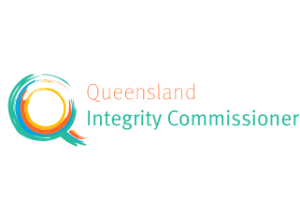 Integrity in Health Information Public Lecture | Chair: Dr Nikola Stepanova Integrity in Health Information Public Lecture | Chair: Dr Nikola StepanovaPanel: Dr Nikola Stepnova, Queensland Integrity Commission (Chair); Mr Philip Green, Queensland Privacy Commissioner; Professor Richard Murray, Dean of the College of Medicine and Dentistry, James Cook University; Dr Vicki Xafis, Senior Research Fellow, National University of Singapore, Centre for Biomedical Ethics The primary and secondary use of confidential health data/information – what are the benefits and risks? Health data is the most sensitive data and there is currently strong public interest in relation to the Australian Government’s My Health Record data collection software. Therefore, the lecture will traverse the way in which this health data can better inform health professionals and guide beneficial policy, as well as the need for data security due to the privacy risks which exist, particularly in this technological age and with the ever expanding use of AI. Click here for full description. |
|||
| 0930-0945 | Short break | |||
| Plenary Session | Raffles Room Chair: Andrew Crowden |
||||
| 0945-1030 | 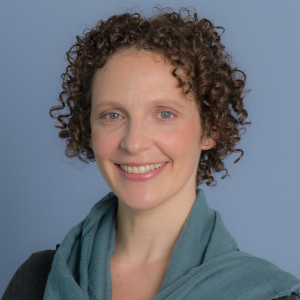 Invited Speaker: Professor Emma Kowal Invited Speaker: Professor Emma Kowal‘Indigenous biobanking’: Prospects and promise Emma Kowal is Professor of Anthropology in the Alfred Deakin Institute at Deakin University, Convenor of the Deakin Science and Society Network and former Deputy Director of the National Centre for Indigenous Genomics at the Australian National University. Her current appointments include membership of the Steering Committee of the Genomics Health Futures Mission, a major investment of the Australian Government in precision medicine. Full biography. |
|||
| 1030-1100 | Morning Tea | Foyer | |||
| Concurrent Session B | ||||
| Savoy Room Chair: Camilla Scanlan |
Kingston Room Chair: Rachel Ankeny |
Raffles Room Chair: Bernadette Richards |
Portside Room EMPIRICAL ETHICS |
|
| 1100-1120 | Bringing the old into the new: The integration of traditional health knowledge perspectives into modern health law Dr Jon Wardle |
Complex factors affecting hospital doctors’ roles in and responsibilities for infection prevention Prof. Lyn Gilbert |
Contesting the certainty of Marion’s case A/Prof. Mandy Shircore |
The ethics of market withdrawal of and disinvestment from medicines Jessica Pace, A/Prof Wendy Lipworth |
| 1120-1140 | Integrating Indigenous principles of human research ethics: The case of two Pacific Island Nations Etvina Lovo |
The use of coercive public health and human biosecurity law in Australia: An empirical analysis Dr David J. Carter |
The missing link: Legal education and active involvement by doctors in the medical negligence claims process as tools to reduce medical error and patient harm Dr Tina Popa, Fiona Milnes |
|
| 1140-1150 | Changeover | |||
| 1150-1210 | The collapsing borders of the more-than-national health system of Timor-Leste Karel Caals |
Privacy and technologically enhanced communicable disease surveillance Dr Jane Johnson |
Mental health care in the age of empowerment Nicole Shepherd |
|
| 1210-1230 | Bridging the equity gap in access to and benefit sharing of biological materials must remain firmly on the global development agenda Dr Calvin W.I. Ho |
One Health, rabies prevention and more-than-human considerations in Indigenous communities in Northern Australia Dr Chris Degeling |
Towards an ecology of dementia through systems thinking Dr Michael Chapman |
|
| 1230-1320 | Lunch | Foyer | |||
| 1245-1320 |
Presentation & Discussion – Proposal to amend AABHL sponsorship & promotions policy | Raffles Room This proposal will be put forward at the AGM, but due to time restraints with the AGM we invite attendees to begin discussions around the proposal during lunch today. |
|||
| Concurrent Session C | ||||
| Savoy Room Chair: Drew Allen Carter |
Kingston Room Chair: Mandy Shircore |
Raffles Room Chair: Rachel Ankeny |
Portside Room RESEARCH ETHICS |
|
| 1320-1340 | Dual loyalty, medical ethics and healthcare in offshore asylum seeker detention A/Prof. Deborah Zion |
A defence of risk relative capacity Sam Boyle |
Direct-to-consumer markets for stem cells: A comparative analysis of Australia, Japan and Singapore A/Prof. Tamra Lysaght |
Biobank networks, medical research and the challenge of globalisationDr Lisa Dive, Dr Edwina Light, Miriam Wiersma |
| 1340-1400 | Overdiagnosis and risk: When is it justifiable to impose risk of harm in health care? Prof. Wendy Rogers |
Challenging the core of legal doctrine: Negotiating the ‘supported’ decision making paradigm Dr Jeanne Snelling |
Justice in genomic medicine: Challenges for Australian law and policy Prof. Belinda Bennett |
|
| 1400-1420 | What does the literature say about how we should prioritise pandemic influenza vaccines and what are the implications for Australasia? Dr Jane Williams |
Hazardous changes in clinical practice Dr Judith Kennedy |
John McPhee (Law) Student Essay Winner The boundaries of embryo research: Extending the 14-day rule |
|
| 1420-1430 | Changeover | |||
| Savoy Room Chair: Nikola Stepanov |
Kingston Room Chair: Mandy Shircore |
Raffles Room Chair: Ian Kerridge |
Portside Room RESEARCH ETHICS |
|
| 1430-1450 | Should we offer resuscitation to babies born at 22 weeks? Dr John Lantos |
Victoria’s voluntary assisted dying laws: A regulatory analysis Prof. Ben White |
Researcher-Native Relations: Ethical considerations relating to emerging animal models in Australian science Prof. Rachel A. Ankeny |
Beyond consent and anonymity in the big data era Dr Vicki Xafis, Dr Wendy Lipworth, Dr Owen Schaefer |
| 1450-1510 | An ethical framework for antenatal counselling at the threshold of viability Dr Andrew Hutchinson |
Not all physician assisted death policies are created equal: Assessing some practical and ethical implications of policy options for medical assistance in dying Daryl Pullman |
Obtaining consent for research from people with dementia: Do we try hard enough? Deirdre Fetherstonhaugh |
|
| 1510-1530 | Hype and genomics: arguing for precautionary implementation to uphold autonomy in preconception screening A/Prof. Ainsley Newson |
Collapsing the indefensible border between law and clinical evidence: A new constitutive model of medical education and decision-making Prof. Malcolm Parker |
The need for ethics committees and evaluation agencies in coverage with evidence development: The case of crizotinib in Australia Dr Drew Carter |
|
| 1530-1550 | Afternoon Tea | Foyer | |||
| Plenary Session | Raffles Room Chair: Rachel Ankeny |
||||
| 1550-1625 | 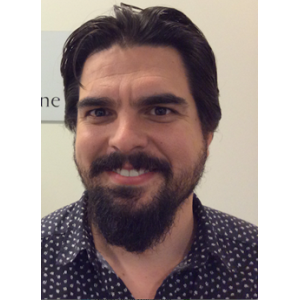 Invited Speaker: Dr Christopher Mayes Invited Speaker: Dr Christopher MayesWhiteness as a bioethical problem Christopher Mayes is a Research Fellow in the Alfred Deakin Institute at Deakin University and Research-Affiliate in Sydney Health Ethics at the University of Sydney. He is an interdisciplinary scholar with disciplinary backgrounds in philosophy and sociology. Full biography. |
|||
| 1625-1700 |  Invited Speaker: Professor Luc Deliens Invited Speaker: Professor Luc DeliensEuthanasia and vulnerable groups. Belgium on a slippery slope? Prof Luc Deliens has a PhD in Health Sciences and MSc in Sociology. Since 2000, he is Director of the End-of-Life Care Research Group, Vrije Universiteit Brussel & Ghent University, in Belgium |
|||
| 1700-1710 | Presentation of Awards | Raffles Room | |||
| 1710-1800 |
All Members & Non-Members Welcome. Refreshments provided. Lucky door prizes! CLICK HERE TO BECOME A MEMBER! |
|||
| 1800 | Empirical Bioethics Stream Networking Meeting | Meet outside the Raffles Room to walk with the group to the Townsville Yacht Club | |||
| Free evening | ||||
Tuesday 25th September 2018 | Rydges Townsville
| 0800 | Registration Open | Conference Centre, Rydges Townsville | |||
| Plenary Session | Raffles Room Chair: Lynn Woodward |
||||
| 0830-0915 | 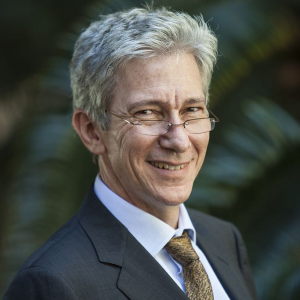 Invited Speaker: Professor Richard Murray Invited Speaker: Professor Richard MurrayEthics, professionalism and the social contract: Socially accountable health professional education Professor Richard Murray is the Dean of the College of Medicine and Dentistry at James Cook University and the President of Medical Deans Australia and New Zealand. His career focus has been in rural and remote medicine, Aboriginal health, public health, tropical medicine, medical and health professional education and the healthcare needs of underserved populations. Full biography. |
|||
| 0915-1000 | 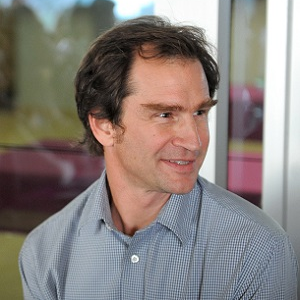 Invited Speaker: Professor Michael Selgelid Invited Speaker: Professor Michael SelgelidDengue vaccination ethics Professor Michael Selgelid is Director of the Monash Bioethics Centre; Director of the World Health Organization (WHO) Collaborating Centre for Bioethics at Monash; and Chair of the Global Network of WHO Collaborating Centres for Bioethics. He is also an Adjunct Professor in the School of Public Health and Preventative Medicine at Monash and a Monash-Warwick Honorary Professor in the Department of Politics & International Studies at the University of Warwick (UK). Full biography. |
|||
| 1000-1030 | Morning Tea | Foyer | |||
| Concurrent Session D | ||||
| Savoy Room Chair: Andrew Crowden |
Kingston Room Chair: Stacy Carter |
Raffles Room Chair: Camilla Scanlan |
Portside Room TEACHING ETHICS |
|
| 1030-1050 | A world first 3D printed tibial implant: Recognising and managing the risk of ethical slippage at the boundary of research and clinical practice with respect to innovative technology Dr Jenny Jones |
When language and words impact discussions and decisions around withholding or withdrawing clinically assisted nutrition and hydration in children with life limiting conditions A/Prof Helen Irving |
Case study: Dr Bawa-Gaba – guilty of manslaughter by gross negligence Janine McIlwraith,Jacob Sutton |
Are you ethical? Sharing practices in assessing medical ethics workshopA/Prof. David Hunter, Drew Carter |
| 1050-1110 | Stem cell registries: Collapsing the borders between research, commerce and clinical practice A/Prof. Wendy Lipworth |
What is wrong with Best Interest Standard, Zone of Parental Discretion and the Harm Principle in paediatric decisions Dr Ben Gray |
Standard of care – can Bolam be resuscitated? Dr Charles Douglas |
|
| 1110-1130 | The ethics of farming human-pig chimeras and non-chimeric pigs Dr Julian Koplin |
Maternal consumption of alcohol and moral responsibility in pregnancy A/Prof. Catherine Mills |
Informed consent and professional liability for causation of harm post Montgomery Tracey Carver, Dr Malcolm Smith |
|
| 1130-1140 | Changeover | |||
| Savoy Room Chair: Andrew Crowden |
Kingston Room Chair: Jenny Jones |
Raffles Room Chair: Camilla Scanlan |
Portside Room PUBLIC HEALTH ETHICS |
|
| 1140-1200 | Ethics in personalised medicine research: Case study of an iPSC-based system for predicting individual treatment responses Dr Mary Jean Walker |
Ulysses in Australia: Can a person with mental illness bind herself in advance to treatment? Katrine Del Villar |
Do health professionals understand enduring documents? The case for education Denise Craig |
What are the responsibilities of AABHL in relation to Australia’s policy on asylum seeker detention? A/Prof. Deborah Zion, A/Prof. Paul Macneill, A/Prof. Chris Jordens, Prof. Angus Dawson |
| 1200-1220 | Reproductive freedom and flourishing in the age of in vitro-derived gametes Dr Lauren Notini |
Psychiatric Advance Directives and the someone else problem: A question of practical identity Anson Fehross |
Authority in empirical bioethics Prof. Stacy Carter, Prof. Vikki Entwistle |
|
| 1220-1240 |
Max Charlesworth (Bioethics) Student Essay Winner In pursuit of our parenting ideals: A Kantian argument against genetic selection |
Existential loneliness, intimacy and end of life in residential aged care Julie Letts |
Contesting certainties and changing paradigms for young professionals: Establishing medical ethics curricula in Pakistan Dr Sarosh Saleem |
|
| 1240-1330 | Lunch | Foyer | |||
| Concurrent Session E | ||||
| Savoy Room Chair: Tamra Lysaght |
Kingston Room Chair: Stacy Carter |
Raffles Room Chair: Angus Dawson |
Portside Room TEACHING ETHICS |
|
| 1330-1350 | Working with communities: Engaging the public about the ethics of and decision to pursue personal genomic testing Dr Jacqueline Savard |
Rapid challenges: Ethics and genomic neonatal intensive care Dr Christopheer Gyngell |
Cards, profiles and templates – regulating human biometric Information and biological material Dr Marcus Smith |
What can we learn from diverse cultures that could/should change our approaches to teaching bioethics? Dr Yvonne Cadet-James, Dr Ben Gray, Prof. Emma Kowal, Dr Richard Matthews, Dr Camilla Scanlan |
| 1350-1410 | Thinking anew about death: Presenting the rationale for an Australian study of health professionals and public attitudes on death and organ donation Dr Cynthia Forlini |
Challenges with the introduction of genomic sequencing in medicine: genetic health professionals’ perspectives Dr Danya Vears |
A proposal for recognising semen as a special class of property Benjamin Hofmann |
|
| 1410-1430 | What do people with life-limiting illness considering euthanasia think about treatments at the end-of-life? Jessica Young |
Increased access to reproductive genetic testing – silver bullet or Pandora’s box? Selina Metternick-Jones |
How compliant are dental practice Facebook pages with Australian health care advertising regulations? A Netnographic review Alexander Holden |
|
| 1430-1440 | Changeover | |||
| Savoy Room Chair: Tamra Lysaght |
Kingston Room Chair: Stacy Carter |
Raffles Room – LIGHTNING TALKS Chair: Nikola Stepanov |
||
| 1440-1500 | Medical futility at the end-of-life: an Australian policy analysis Eliana Close |
Disclosure of genetic results to relatives – is there a gap between practice and regulation? Dr Carolyn Johnston, Dr Rebekah McWhirter |
Teaching bioethics and biotechnology through children’s cyberpunk: Children’s literature in the university ethics classroom Evie Kendal What mechanisms are suitable to protect Australian Indigenous knowledge |
|
| 1500-1530 | Afternoon Tea | Foyer | |||
| Closing Plenary Session | Raffles Room Chair: Bernadette Richards |
||||
| 1530-1615 | 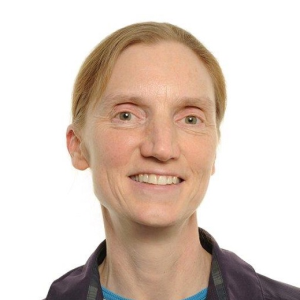 Invited Speaker: Professor Vikki Entwistle Invited Speaker: Professor Vikki EntwistlePerson-centred care: navigating ethical tensions and uncertainties Vikki Entwistle is the Director of the Centre for Biomedical Ethics at the National University of Singapore. Vikki’s research is highly interdisciplinary and collaborative. She draws particularly on social sciences and philosophy, and works with clinicians and patient-advocates as well as academic colleagues to develop practically useful thinking about how healthcare policy and practice can contribute to human flourishing. Full biography. |
|||
| 1615-1630 | Closing Session & Handover | |||
| 1730 |
Meet the ferry for the transfer to Magnetic Island. Boarding 1745, please do not be late, we cannot wait. IMPORTANT: The return transfer on the ferry has been chartered for the AABHL conference dinner. It is not transferable to another ferry crossing time. |
|||
| 1830-2100 |
Conference Dinner | Peppers Blue on Blue Resort, Magnetic Island Catch the ferry to the gorgeous Magnetic Island for a 3 course dinner and drinks. Entertainment will be provided by Pinky’s Disco Entertainment. Tickets no charge for full registrations and $120 for guests and day registrations. Book during registration. FERRY RETURN: Ferry will board 2115 for a 2130 departure. Returning to the mainland 2155. |
|||
Wednesday 26th September 2018 | Rydges Townsville
AEN CONFERENCE 2018: PRE CONFERENCE WORKSHOPSA selection of workshops will be held at the venue as part of the incoming AEN conference on Wednesday 26th September and AABHL Delegates are welcome to attend. Workshop fees are an additional cost to both AABHL and AEN delegates. |
|||
| 0730-0830 | Registration | ||
| Room | Savoy Room | Kingston Room | Raffles Room |
| 0830-1230 | Consent in research
Facilitators: Professor Ian Kerridge and Professor Paul KomesaroffThis workshop will cover: Capacity to consent: Own consent; substitute decision maker for adults consent; parental / legal guardian consent. Approaches to consent: full consent; opt out; waiver of consent. Ascertaining level of risk and consent. Consent in different situations, e.g online research. Further information will be advised when available. |
Research integrity
Facilitators: Dr Jillian Barr and Ms Anne WalshThis workshop will cover: Update on Australian Code for the Responsible Conduct of Research. Managing misconduct – how to address problems that arise. How to facilitate adequate monitoring of studies. Further information will be advised when available. |
|
| 1230-1300 | Break | ||
| Room | Savoy Room | Kingston Room | Raffles Room |
| 1300-1700 | HREC members training
Facilitators: Dr Conor Brophy and Ms Sara PottsThe purpose of the workshop is to provide Human Research Ethics Committee (HREC) Members, HREC Administrators and those involved with the planning, conduct and review of research involving humans with a deeper understanding of the purpose and function of an HREC and their role within these committees. The workshop is designed to provide an opportunity for stakeholders to engage with facilitators experienced in ethical deliberation on research and their peers in a supportive learning environment. The workshop will focus on the National Statement and other relevant guidance by means of practical consideration of research ethics application and the role of the HREC and researchers in applying this guidance. |
Ethics Goverance of Human Research Data in the Age of Genomics
Facilitators: A/Professor Andrew Crowden and Dr Richard RoylanceIt is reasonable to expect that contemporary genomic data governance arrangements should be developed to respect humans and non-human animals, promote fair distribution of benefits, foster trust, reciprocity and integrity while offering support to the advancement of research and scientific knowledge. If governance is inclusive, sustainable and responsive to current and future scientific developments then it is likely to be practically useful and ethical. Many will benefit. In this workshop, key challenges associated with the ethical governance of new [global] hybrid genomic data infrastructures (including genomic biobanks) will be identified and briefly discussed. Participants will have the opportunity to consider cases and make suggestions in response to practical examples. The Australian context is used as an initial focus for discussion. However, the claims and suggestions are applicable anywhere. They are particularly pertinent to situations where the scientific reliance on new hybrid genomic data infrastructures is outpacing considered ethical analysis. |
Research with Aboriginal and Torres Strait Islander people
Facilitators: TBCThis workshop will cover: How to conduct consumer engagement. Reflecting on different population sizes in research depending on research location . Ethical consideration when conducting research with First Nations peoples. Update on revised Aboriginal and Torres Strait Islander research ethics guidelines document. |
| 1800 | AEN Civic Reception hosted by the Townsville Mayor (AEN Delegates only) | ||
- Ethics training programs in the postgraduate setting (V)
- Reviewing undergraduate medical education programs (V)
- A review of training approaches for clinical ethics committee members (V)
- Conscientious objection and non-invasive prenatal testing
- Revisiting Gender CARE: An alternative framework for resolving disputes over gender healthcare for children and adolescents
- 2021 On-Demand Oral – Clinical Ethics
- 2021 On-Demand Oral – Empirical Ethics
- 2021 On-Demand Oral – Health Law
- 2021 On-Demand Oral – Public Health Ethics
- 2021 Oral Presentation – Clinical Ethics
- 2021 Oral Presentation – Empirical Ethics
- 2021 Oral Presentation – Health Law
- 2021 Oral Presentation – Public Health Ethics
- 2021 Oral Presentation – Research Ethics
- 2021 Oral Presentation – Teaching Ethics
- 2021 Perspectives Oral – Clinical Ethics
- 2021 Perspectives Oral – Health Law
- 2021 Perspectives Oral – Research Ethics
- 2021 Rapid Fire Oral – Clinical Ethics
- 2021 Rapid Fire Oral – Health Law
- 2021 Rapid Fire Oral – Public Health Ethics
- 2021 Rapid Fire Oral – Research Ethics
- 2023
- Clinical Ethics
- Clinical Ethics – Emerging Technologies
- Clinical Ethics – Professionalism and/or Ethics
- Clinical Ethics – Relationships between ethics and law
- Clinical Ethics – The role of advocacy in bioethics and health law
- Empirical Ethics
- Health Law
- Health Law – Emerging Technologies
- Health Law – Professionalism and/or ethics
- Health Law – Relationships between ethics and law
- Health Law – The role of advocacy in bioethics and health law
- Keynote Speaker
- Lightning Talk
- Oral Presentation
- Public Health Ethics
- Public Health Ethics – Emerging Technologies:
- Public Health Ethics – Professionalism and/or ethics
- Public Health Ethics – Relationships between ethics and law
- Public Health Ethics – The role of advocacy in bioethics and health law
- Public Lecture
- Research Ethics
- Research Ethics – Emerging Technologies
- Research Ethics – Professionalism and/or ethics
- Research Ethics – The role of advocacy in bioethics and health law
- Student Essay Winner
- Teaching Ethics
- Teaching Ethics – Professionalism and/or ethics
- Uncategorized
- Workshop
This site uses cookies. Find out more about cookies and how you can refuse them.


